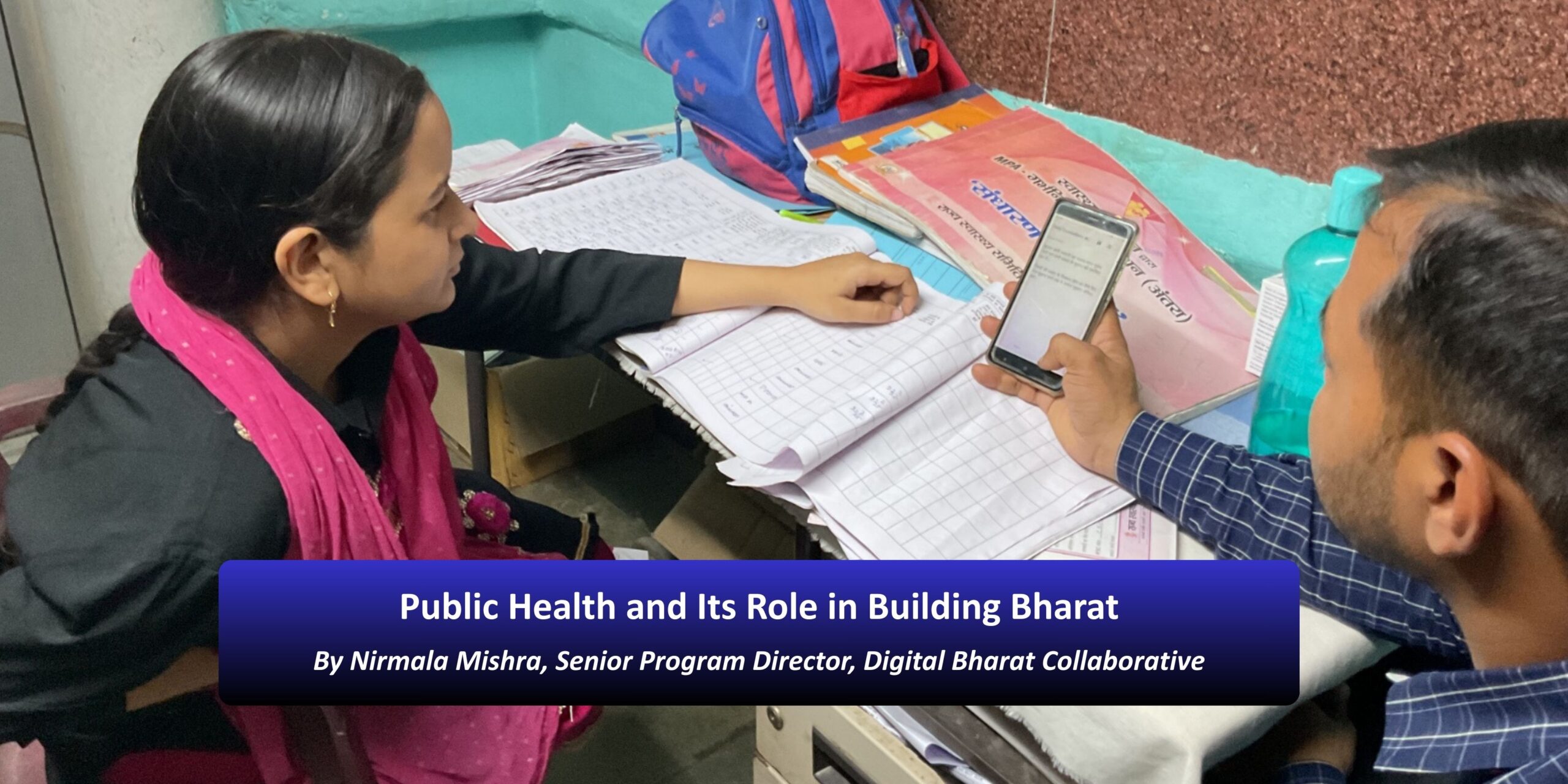

By Nirmala Mishra, Senior Program Director, Digital Bharat Collaborative
Public health is central to a nation’s progress, directly influencing productivity, well-being, and equity. For Viksit Bharat, a strong public health system is essential. The National Health Mission (NHM) has been a game-changer in this space, significantly strengthening India’s healthcare delivery and advancing equitable access over the past decade.
As a partner to the NHM in states like Assam and Bihar, we at Digital Bharat Collaborative are committed to strengthening public health systems and supporting the government to transform healthcare, especially at the last mile.
NHM As a Tool of Transformation and Empowerment
In India, where vast geographic, demographic, and socio-economic diversity poses challenges to equitable health access, the NHM has emerged as a cornerstone of progress. Launched with the aim of transforming access to healthcare, NHM is not just strengthening infrastructure but empowering frontline workers. From deploying medical officers and nurses to training community health officers (CHOs) at Health and Wellness Centres, NHM has filled crucial gaps in primary care, especially in rural and remote regions.
This has not only improved access to quality healthcare but has also boosted local employment, indirectly supporting the rural economy. When communities have access to basic health services, productivity rises, absenteeism falls, and households are less likely to suffer catastrophic health expenditures.
NHM’s efforts to reduce the burden of maternal and child mortality, malnutrition, and communicable diseases have had a direct impact on India’s labour force participation and human capital development – particularly among women and youth, who are our greatest change agents.
Moreover, improved health outcomes contribute to reducing income inequality. When underserved communities receive equitable healthcare, their ability to engage in education and employment increases- helping to close socio-economic gaps and support inclusive economic growth. This aligns closely with India’s broader development vision under initiatives like Viksit Bharat @2047.
The Role of Digital Technology
In parallel, the National Digital Health Mission (NDHM) is reshaping healthcare delivery through technology. By introducing innovations such as ABHA IDs, digital health records, and verified registries of providers and facilities, NDHM is building a modern, interoperable health infrastructure that enhances efficiency, transparency, and accountability. This digital backbone not only reduces paperwork, but also allows data-based targeting of schemes, effective use of resources, and enhanced outcomes- factors that strengthen governance and can shift the paradigm of public policy.
The NDHM also has potential to leapfrog India’s digital economy. With the rise of telemedicine platforms, Mobile Health Services, the digital health ecosystem is opening new avenues for entrepreneurship, job creation, and innovation. This supports India’s vision of becoming a knowledge-based, technology-driven economy, driven by grassroot leadership.
Conclusion: Health as a Catalyst for Viksit Bharat
As we advance towards a Viksit Bharat, public health becomes a central pillar of national strategy. The NHM has not only strengthened the delivery of essential services but also laid the groundwork for an empowered nation. Together with digital transformation, it is turning health into an engine of growth, inclusion and transformation.
About Nirmala Mishra
Public health professional with 22+ years of experience leading large-scale health and nutrition projects with government and international development agencies.